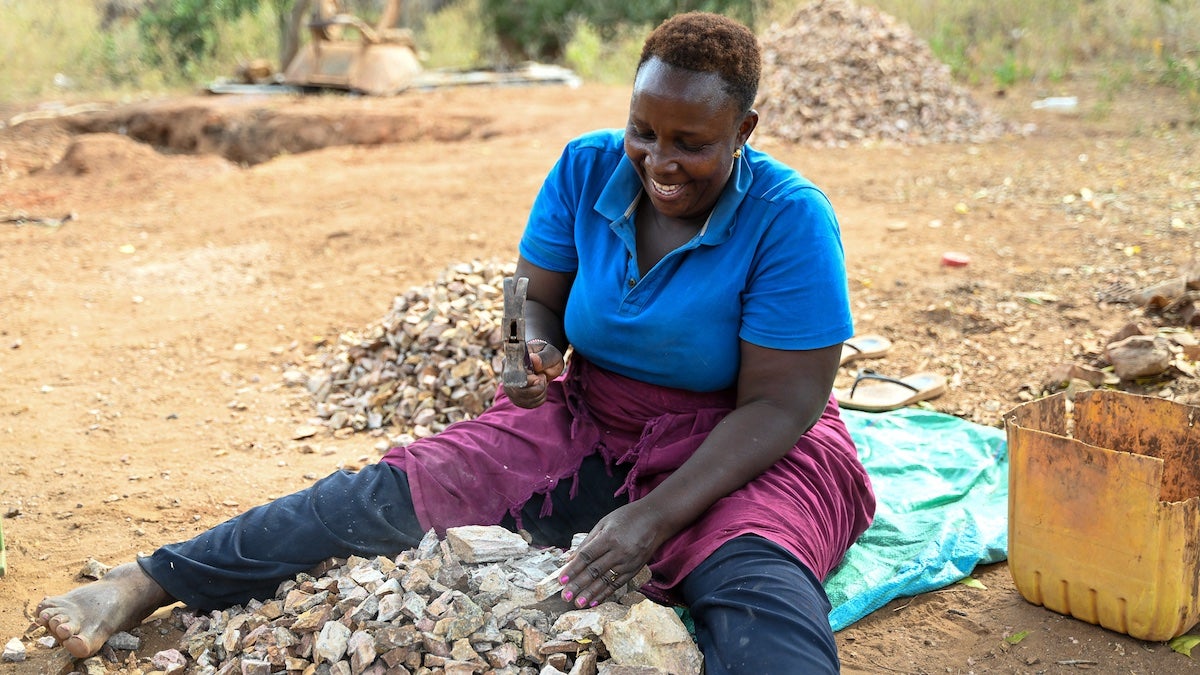Bridging the gap: How Kenya’s National Care Policy can drive gender equality
Date:

In many parts of the world, including Kenya, women carry the heavy burden of care work—cooking, cleaning, looking after children, the elderly, or sick family members. Most of this work is unpaid and often goes unnoticed, despite how essential it is to daily life. But this invisible labor has a huge impact on women’s lives, especially their ability to earn an income and be financially independent.
That’s where Kenya’s National Care Policy comes in. The policy, currently in its final stages, aims to recognize and value care work for the critical role it plays in society. It sets out to reduce the load on women and help balance the scales between unpaid care and paid employment, which could lead to a more equal future for all.
What is the National Care Policy?
The National Care Policy is a bold move by Kenya to tackle the country’s care work crisis. Developed by the State Department of Gender and Affirmative Action (SDfGAA) with support from UN Women, the policy focuses on addressing both unpaid and paid care work. It looks to provide public care services, implement care-friendly workplace policies, and introduce technology and infrastructure that can ease the care burden.
This isn’t just about helping women take on paid jobs—it’s about making sure that care work, whether at home or in the workforce, is recognized and supported as a key part of the economy.
Why Care Work Matters to the Economy
Globally, women do about 76% of all unpaid care work, according to the International Labour Organization (ILO). This means they spend more than three times as much time on unpaid care tasks compared to men. In Kenya, the situation is even more pronounced; women spend 4 to 5 hours each day on unpaid care work, while men average only about one hour. This gap prevents many women from entering the workforce and gaining financial independence.
Anna Mutavati, UN Women’s Country Representative in Kenya, explains that care work is central to the country's economic growth. At a recent Women’s Economic Principles (WEPs) Forum, she called for recognizing unpaid care work as a part of Kenya’s GDP, urging the need to lighten the load on women and girls by sharing responsibilities more fairly. She also stressed the importance of challenging traditional norms that keep women from contributing equally to the economy.
Kenya’s ranking of 75th out of 146 countries in the Global Gender Gap Report 2024 shows there’s still much work to be done. Women make up a significant portion of the workforce, yet they remain underrepresented in leadership roles and are often paid less than men.
The Financial Gains of Gender Equality
Judy Njino, Executive Director of the Global Compact Network Kenya, believes that closing the gender gap could lead to massive financial benefits. Studies suggest that equal participation of men and women in the economy could add up to $28 trillion to the global GDP by 2025. Njino emphasizes the importance of family-friendly policies, like flexible working hours, parental leave, and accessible childcare, to help employees balance their work and family life.
By lightening the burden of care work on women, we’re not just empowering individuals—we’re empowering entire communities and economies.
Best Practices for the Private Sector
Some private sector companies in Kenya are already stepping up to support the care agenda. Representatives from Bamburi Cement, Safaricom, and the International Center for Research on Women (ICRW) recently shared their insights on best practices. These include offering childcare and eldercare services, providing flexible work schedules, and partnering with organizations to invest in care infrastructure. Financial assistance programs, such as scholarships and caregiver support programs, were also highlighted as effective ways to ease the strain on working families.
Pushing for Women's Empowerment
UN Women is calling on companies to take the lead in supporting women’s career advancement, ensuring equal pay, and investing in local care infrastructure. Accountability measures are crucial to making sure these goals are met, so progress can be tracked and celebrated.
In collaboration with the Global Compact, UN Women encourages the private sector to adopt the Women’s Empowerment Principles (WEPs), a set of guidelines to help companies improve their gender equality efforts. By committing to these principles, businesses can create a more inclusive and supportive environment for women, helping to bridge the gap and build a brighter, more equal future for all.
Conclusion
Kenya’s National Care Policy is a groundbreaking effort to address the challenges of unpaid care work. By recognizing its value, redistributing responsibilities, and creating policies that make care work more manageable, the country is taking a major step toward closing the gender gap. This initiative has the potential to transform lives, uplift women, and boost Kenya’s economy. It’s about time we recognize the power of care work and the crucial role it plays in shaping a more equal and prosperous society.